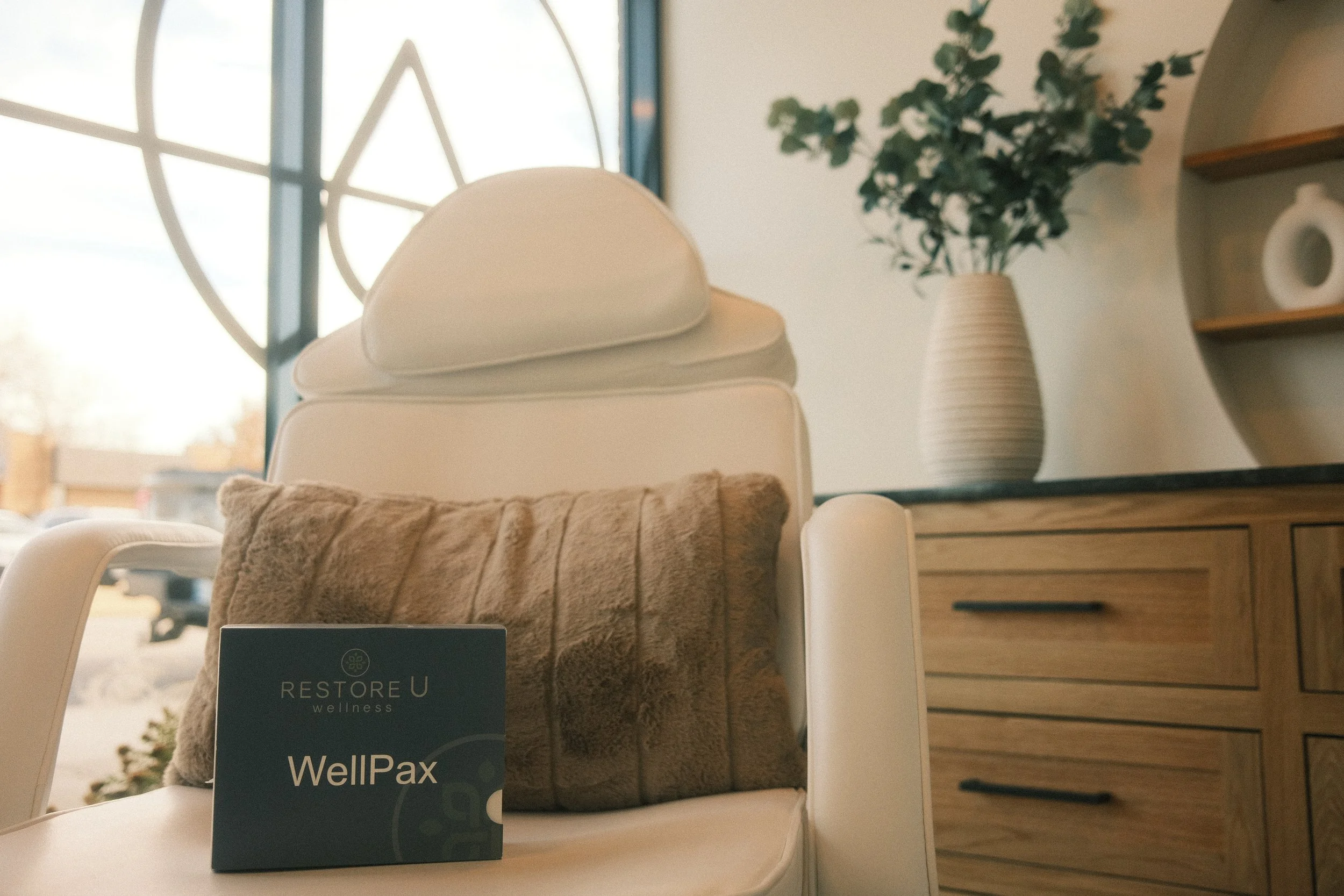Low Energy, Low Mood, Low Motivation?
Low Testosterone Treatment in Tulsa
Testosterone isn’t just about muscle and libido—it plays a key role in energy, mood, motivation, and overall well-being for both men and women. When levels drop, you may feel fatigued, irritable, unmotivated, and not like yourself.
At WellSpot Functional Medicine, we take a comprehensive approach to diagnosing and treating low testosterone (Low T) to help you regain your energy, confidence, and quality of life.
Did you know?
Low T impacts energy, mood, motivation, and metabolism too!
Signs of Low Testosterone
Low T can show up in ways you wouldn’t expect. If you’re experiencing any of the following, your hormones may be out of balance:
✓ Fatigue & Low Energy – Feeling drained, even after a full night’s sleep
✓ Low Libido & Sexual Dysfunction – Loss of desire or performance issues
✓ Mood Swings & Irritability – Increased anxiety, depression, or feeling “off”
✓ Loss of Muscle Mass & Strength – Struggling to maintain muscle despite workouts
✓ Increased Body Fat – Especially around the belly
✓ Brain Fog & Poor Concentration – Difficulty focusing or remembering things
✓ Lack of Motivation & Drive – Feeling unmotivated, sluggish, or uninspired
How We Treat Low T (for Men)
Unlike traditional approaches that rely on one-size-fits-all prescriptions, we take a functional medicine approach to restoring healthy testosterone levels naturally and effectively.
-
We don’t just check your testosterone levels—we look at thyroid function, adrenal health, growth hormone, inflammation, and key nutrient levels to identify what’s really causing your symptoms.
-
We offer customized solutions to safely and effectively restore testosterone levels for both men and women.
Testosterone Replacement Therapy (TRT)
✓ Injectable testosterone (preferred for steady, consistent levels)
✓ Gels, creams, and pellets available based on patient preferenceClomiphene / Enclomiphene (Often a good option for Men Under 40 to 45)
✓ Helps the body naturally produce more testosterone without shutting down productionNatural & Lifestyle-Based Approaches
✓ Optimized nutrition & supplementation
✓ Stress & adrenal support (high cortisol blocks testosterone)
✓ Strength training & exercise for natural hormone production
✓ Toxin reduction (plastics, chemicals, and processed foods can lower testosterone)

Symptoms We Treat
✓ Chronic fatigue – Feeling tired no matter how much you rest
✓ Low libido – Decreased sexual desire or satisfaction
✓ Loss of muscle mass or strength – Difficulty building or maintaining lean muscle
✓ Brain fog – Trouble concentrating or feeling mentally sharp
✓ Depressed mood or irritability – Low motivation, mood swings, or emotional flatness
How We Treat Low T (for Women)
Unlike conventional treatments that often overlook testosterone in women, we take a functional medicine approach to naturally and effectively restore healthy levels for better energy, mood, and overall well-being.
-
We don’t just check your testosterone levels—we look at thyroid function, adrenal health, estrogen balance, growth hormone, inflammation, blood sugar, insulin, and key nutrient levels to identify what’s really causing your symptoms.
-
Many women experience declining testosterone beginning in the early to mid-thirties. We tend toward supplementing testosterone in microdoses to augment what the ovaries are struggling to produce.
Testosterone Replacement Therapy (TRT)
✓ Injectable testosterone with small size needle, usually done in the subcutaneous tissue weekly
✓ Bioidentical creams can be compounded in a custom strength used typically applied 5 to 7 days per week.
✓ Testosterone pellets. We recommend this more as a favorable option for some women post menopausal. In menopause testosterone and estradiol can be used via pellet. While we balance Progesterone with a oral capsule, troche, or cream.Natural & Lifestyle-Based Approaches
✓ Optimized nutrition & supplementation
✓ Stress & adrenal support (high cortisol and stress often accelerates decline in DHEA and testosterone)
✓ Strength training & exercise for natural hormone production
✓ Toxin reduction (plastics, chemicals, and processed foods can lower testosterone)
The path to restoring healthy testosterone levels is simple
Step 1: Meet with Your Provider
We’ll sit down with you to review your symptoms, health history, lifestyle factors, and discuss a lab work-up that includes key hormone levels—especially free and total testosterone, DHEA, thyroid, and adrenal markers.
Step 2: Personalized Treatment Plan
Once we review your labs, we’ll create a customized plan to restore testosterone naturally and effectively. This may include supplements, bio-identical hormone therapy, medications like Clomiphene (when appropriate), targeted nutrition, and lifestyle strategies. All medications and supplements are conveniently delivered to your door.
Step 3: Ongoing Monitoring & Support
You’ll have continued access to your provider team to ask questions, adjust your plan, and stay on track. We monitor lab values and symptom improvement closely to fine-tune your Wellness Plan and ensure you feel your best—long term.

Testimonials
FAQs
-
Yes! While testosterone is often thought of as a “male hormone,” it plays a vital role in energy, mood, libido, and muscle tone for women as well. Low levels can impact overall wellness and quality of life in both men and women.
-
Low T can be caused by a variety of factors, including age-related decline, chronic stress, poor sleep, insulin resistance, thyroid dysfunction, toxin exposure, and certain medications. In women, it may also be related to birth control use, perimenopause, or adrenal fatigue.
-
We use comprehensive lab testing to measure free and total testosterone, along with other key hormones like DHEA, estrogen, progesterone, cortisol, and thyroid function—to get a full picture of what’s going on.
-
Treatment depends on your unique needs and lab results. Options may include bioidentical hormone therapy, Clomiphene (for men), adrenal and nutrient support, lifestyle changes, and targeted supplements to restore balance naturally and effectively.
-
Not necessarily. Our goal is to support your body’s natural hormone production, correct underlying imbalances, and help you feel your best. Some patients use hormone therapy short-term, while others may benefit from longer support based on symptoms and goals.
Related articles
Healthy testosterone resources

Ready to Start Feeling Like Yourself Again?
If you’re feeling tired, unmotivated, or not yourself, don’t ignore the signs. Low testosterone is treatable—with the right approach, you can restore your energy, confidence, and vitality.






